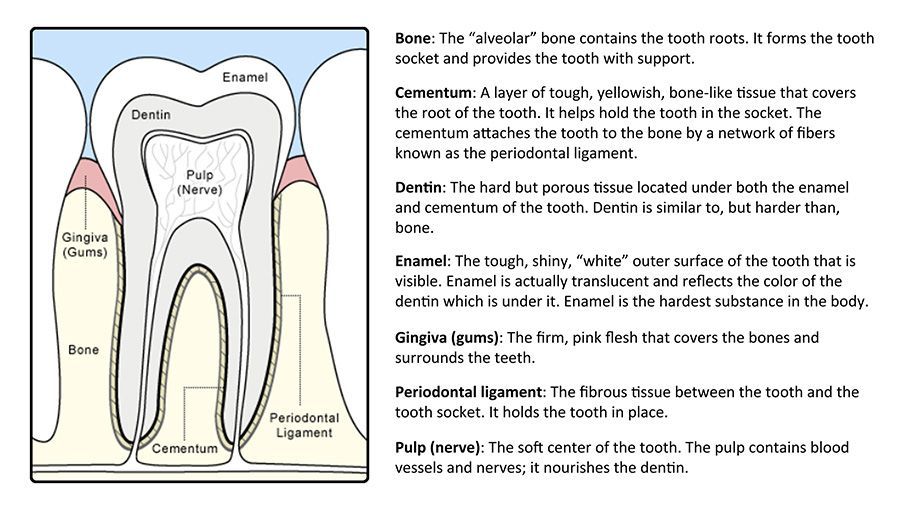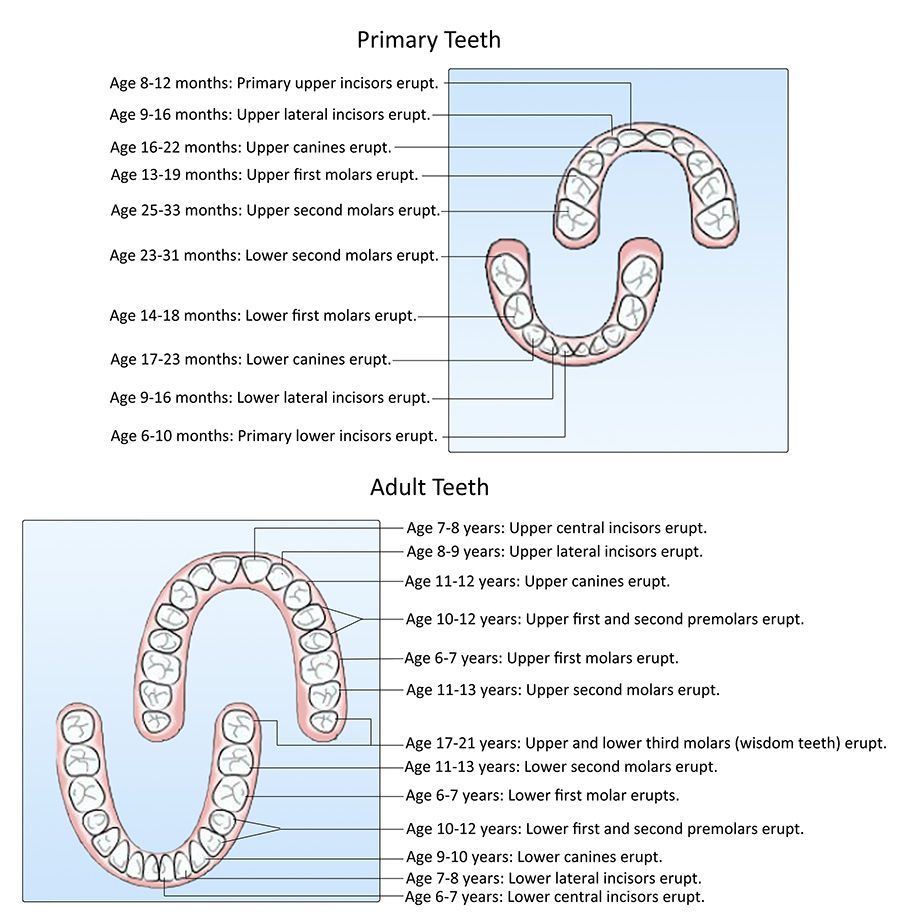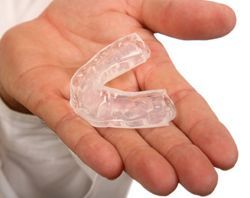Protect Your Smile With
Comprehensive Preventive Dentistry
PREVENTIVE CARE
Preventive dental care is important throughout your life, no matter your age. By practicing good oral hygiene at home and scheduling regular checkups with your dentist, you can help keep your smile bright and healthy for many years to come. Here are a few simple ways that you can prevent the build-up of plaque and cavities:
Brush your teeth at least twice a day with a soft-bristled toothbrush. Use fluoride toothpaste to remove food particles and plaque from the tooth surfaces. Also, be sure to brush the top surface of your tongue; this will remove any extra plaque-causing food particles and help keep your breath fresh!
Clean between your teeth by flossing at least once a day. You can also use a mouthwash to help kill bacteria and freshen your breath. Decay-causing bacteria can linger between teeth where toothbrush bristles can't reach. Floss and mouthwash will help remove plaque and food particles from between the teeth and under the gum line.
Eat a balanced diet, and try to avoid extra-sugary treats. Nutritious foods such as raw vegetables, plain yogurt, cheese, or fruit can help keep your smile healthy.
Remember to schedule regular checkups with your dentist every six months for professional teeth cleaning.
Ask your dentist about dental sealants and protective plastic coatings that can be applied to the chewing surfaces of the back teeth where decay often starts.
If you play sports, be sure to ask your dentist about special mouthguards designed to protect your smile.
If it's been six months since your last dental checkup, then it's time to contact our practice and schedule your next appointment!
TEETH FOR LIFE
Practicing good oral hygiene means maintaining your smile by visiting the dentist regularly and taking care of your teeth and gums between checkups. Our practice wants to make sure that you get the most out of your office visits and that your teeth stay healthy for life! We'll work with you to provide complete dental care and show you how to maintain your smile at home with the right dental products for you and your family.
DENTAL CLEANINGS AND REGULAR CHECKUPS
Regular dental checkups are an important part of maintaining your oral health. During your regular checkup, your hygienist will:
- Check for any problems that you may not see or feel
- Look for cavities or any other signs of tooth decay
- Inspect your teeth and gums for gingivitis and signs of periodontal disease
- Provide a thorough teeth cleaning, rinse, and polish
Visiting the dentist every six months gives you the chance to talk with your doctor and receive answers for any questions you may have about your oral health. Checkups are also a great way for you to find out about new treatments that may benefit your smile.
CHOOSING THE RIGHT TOOTHPASTE AND TOOTHBRUSH
From toothpaste and mouthwash to toothbrushes and dental floss, it's important to choose the right products for your smile. Keep in mind that when you're looking for a new toothpaste or toothbrush, be sure to choose one that has been approved by the American Dental Association (ADA). Your dentist can also help by recommending certain dental products for use at home.
LEARN MORE
Did you know that at birth, people already have 20 primary (baby) teeth that begin erupting after six months, and that by age 21, there are no more primary teeth, and all 32 permanent teeth have erupted?
Getting to know your teeth can be fun and educational!
ANATOMY OF A TOOTH

TOOTH ERUPTION CHART

SEALANTS
Sometimes brushing is not enough, especially when it comes to those hard-to-reach spots in your mouth. It is difficult for your toothbrush to get in between the small cracks and grooves on your teeth. If left alone, those tiny areas can develop tooth decay. Sealants give your teeth extra protection against decay and help prevent cavities.

Dental sealants are plastic resins that bond and harden in the deep grooves on your tooth's surface. When a tooth is sealed, the tiny grooves become smooth and are less likely to harbor plaque. With sealants, brushing your teeth becomes easier and more effective.
Sealants are typically applied to children's teeth after their permanent teeth have erupted as a preventive measure against tooth decay. However, adults can also receive sealants on healthy teeth. It is more common to seal permanent teeth rather than baby teeth, but every patient has unique needs, and your dentist will recommend sealants on a case-by-case basis.
Sealants typically last from three to five years, although it is fairly common to see adults with sealants still intact from childhood. A dental sealant only provides protection when it is fully intact, so if your sealants come off, let your dentist know and
schedule an appointment for your teeth to be resealed.
FLUORIDE
USING FLUORIDE TO PROTECT YOUR TEETH
You brush your teeth twice a day, floss regularly, and visit the dentist every six months, but did you know that rinsing with fluoride — a mineral that helps prevent cavities and tooth decay — also helps keep your teeth healthy and strong?
Fluoride is effective in preventing cavities and tooth decay by coating your teeth and preventing plaque from building up and hardening on the tooth's surface.
FLUORIDE COMES IN TWO VARIETIES, SYSTEMIC AND TOPICAL:
- Systemic fluoride is ingested, usually through a public water supply. While teeth are forming under the gums, fluoride strengthens tooth enamel, making it stronger and more resistant to cavities.
- Fluoride can also be applied
topically to help prevent caries (cavities) on teeth present in the mouth. It is delivered through toothpaste, mouthwash, and professional fluoride applications.
RECEIVING A FLUORIDE TREATMENT FROM YOUR DENTIST
A fluoride treatment in your dentist's office takes just a few minutes. After the treatment, patients may be asked not to rinse, eat, or drink for at least 30 minutes in order to allow the teeth to absorb the fluoride. Depending on your oral health or your doctor's recommendation, you may be required to have a fluoride treatment every three, six, or 12 months. Your doctor may also prescribe an at-home fluoride product such as a mouthwash, gel, or antibacterial rinse.
HOW TO CHOOSE THE RIGHT FLUORIDE TREATMENT
When choosing your own at-home fluoride product (such as toothpaste or mouthwash), always check for the American Dental Association's (ADA) seal of acceptance. Products marked with the ADA seal of approval have been carefully examined by the ADA, and approved based on safety and effectiveness. Take care of your teeth and smile bright with dental fluoride treatments!
MOUTHGUARDS/NIGHTGUARDS
Whether you wear braces or not, protecting your smile while playing sports is essential. Injuries to the mouth and jaw are some of the most common injuries received by athletes. Mouthguards help protect your teeth and gums. If you participate in basketball, boxing, hockey, football, gymnastics, lacrosse, martial arts, racquetball, rugby, track and field, skateboarding, skiing and snowboarding, skydiving, soccer, surfing, volleyball, water polo, weightlifting or wrestling, it is recommended by the American Dental Association that you wear a mouthguard.

TYPES OF MOUTHGUARDS
Choosing the right mouthguard is important. Dr. Rosario will custom-make the mouthguard specifically for your bite. When you choose a mouthguard, be sure to pick one that is tear-resistant, well-fitted for your mouth, and easy to keep clean. Also, make sure it does not prevent you from breathing properly during use. If you wear braces or a retainer, it is imperative for you to wear a mouthguard. Your dentist can show you how to wear a mouthguard properly and how to choose the right mouthguard to protect your smile.
TAKING CARE OF YOUR MOUTHGUARD
Similar to a retainer, braces, or any other special dental appliance, it is important to take care of your mouthguard by storing it properly and keeping it clean. You should also know when to replace your old mouthguard with a new one. Here are a few simple ways to keep your mouthguard clean and working correctly:
- Gently scrub your mouthguard after each use with a toothbrush and toothpaste.
- Store your mouthguard in a protective case.
- Do not leave your mouthguard in the sun or in hot water; it may melt or become deformed.
- Replace your mouthguard at the beginning of every new sports season. You should also replace your mouthguard if you notice it has become worn and no longer fits properly.
- Do not wear a retainer with your mouthguard. If you wear braces, your dentist will help design a mouthguard to protect your teeth and your braces.
- Do not chew on or cut pieces off of your mouthguard.
- Bring your mouthguard to each dental checkup, and your dentist can check to make sure it's still in good shape.
Our goal is to help minimize your chances of a sports related injury. Be sure to ask your dentist about mouthguards at your next dental checkup - GO TEAM!
NIGHT GUARDS
If you often wake up with jaw pain, earaches, or headaches, or if you find yourself clenching or grinding your teeth, you may have a common condition called bruxism.
Although the causes of bruxism are not really known, several factors may be involved. Stressful situations at home, school, or work, problems in sleeping, an abnormal bite, and crooked or missing teeth may contribute to bruxism. Many people do not even know that they grind their teeth, as it often occurs when one is sleeping. If not corrected, bruxism can lead to broken teeth, cracked teeth, damaged restorations, or even tooth loss.
There is an easy, non-invasive treatment for bruxism: nightguards.
Nightguards are an easy way to prevent the wear and damage that teeth-grinding cause over time. Custom-made by your dentist from soft material to fit your teeth, a nightguard is inserted over your top or bottom arch and prevents contact with the opposing teeth.
DENTAL EXAMS AND CLEANINGS
PREVENTING PROBLEMS BEFORE THEY START
The health of your teeth and mouth is very important to the well-being of your entire body, and while routine brushing and flossing at home is necessary to keep your smile looking its best, visiting your dentist for a comprehensive exam and cleaning is essential. The American Dental Association recommends that you visit your dentist every six months to ensure your teeth stay healthy and your smile stays beautiful.

By routinely seeing your dentist for exams and cleanings, you can:
- Prevent tooth decay, gum disease, and bad breath
- Save money by avoiding costly and extensive dental procedures
- Keep your teeth white by reducing staining from food and drinks
- Shorten the time spent in your dentist's office
- Have a smile that will last a lifetime
THE EXAM
During your exam, your dentist will thoroughly examine your teeth and gums for signs of tooth decay, gum disease, and other health problems. Your dentist may also want to take X-rays to see what is happening beneath the surface of your teeth and gums. Whether these X-rays are traditional or digital, the images provided will help your dentist discover dental issues not visible to the naked eye.
PROFESSIONAL CLEANINGS
Dr. Rosario or our hygienist will begin your cleaning by exploring the surface of your teeth to determine if you have any cavities and to examine the quality of existing fillings. We will then perform a periodontal exam to make sure your gums adhere tightly to your teeth and that no periodontal disease or bone loss may occur.
Next, we will carefully clean your teeth with a variety of tools to remove any hard mineral buildup (tartar) from your teeth. Then, we will floss your teeth, use a polishing compound, and apply fluoride. Cleanings usually aren't painful, but if you have any anxiety about your dental exam, be sure to let Dr. Rosario know. They may offer several sedation options to ensure your comfort. If your dentist or hygienist finds tooth decay or gum disease, they will talk to you about changing your brushing or flossing habits. In severe cases, they may recommend antibiotics or other dental treatments. If your teeth and gums appear to be healthy, your dentist will probably recommend that you continue your brushing and flossing routine as usual.
MILD SEDATION DENTISTRY
We understand that going to the dentist may be stressful for some of our patients. If you're nervous about your dental visit, let us know! We want you to be as comfortable as possible during your dental treatment and are pleased to offer our patients the option of comfortable, safe, and effective sedation dentistry. Patients who benefit from sedation dentistry have:
- A fear or anxiety of being at the dentist
- A hard time sitting still for long periods of time
- Apprehension about certain dental procedures
WHAT IS SEDATION DENTISTRY?
Sedation dentistry allows your doctor to provide a variety of dental treatments safely and comfortably for patients who experience anxiety when visiting the dentist. There are several benefits of sedation dentistry, including:
- Less fear or anxiety during treatment
- More comfort during dental procedures
- A more relaxing dental experience
Patients who have undergone a procedure using sedation dentistry will tell you it's a simple, relaxing way to experience dentistry.

ORAL SEDATION
Anxiolysis is a light form of sedation dentistry and is often used for patients with mild anxiety or those with longer procedures or more complex situations. Usually administered orally, with mild sedation, you remain awake or very sleepy throughout the entire procedure and are able to breathe on your own, but you will feel a great sense of relaxation. Patients typically recover from anxiolysis sedation within a few hours after the procedure is complete.
INHALED SEDATION
Nitrous oxide, or laughing gas, is the most frequently used method for easing mild to moderate anxiety. Administered through a small mask that fits over your nose, it is an effective way to calm anxiety, raise your pain threshold, and even make time seem like it's passing quicker than usual. At the end of your appointment, you'll resume breathing regular oxygen, and all the effects of nitrous oxide will disappear, so you can resume your normal activities immediately.
Understanding the range of choices that are available to relieve anxiety and discomfort can be very useful. Please contact our practice to schedule a consultation, learn more about sedation dentistry, and find out which sedation dentistry method is right for you.
NITROUS OXIDE
Nitrous oxide, or laughing gas, is the most frequently used method for easing mild to moderate anxiety. Administered through a small mask that fits over your nose, it is an effective way to calm anxiety, raise your pain threshold, and even make time seem like it's passing quicker than usual. As the gas begins to work, you will become calm, although you will still be awake and able to talk with the dentist.
At the end of your appointment, you'll resume breathing regular oxygen, and all the effects of nitrous oxide will disappear so that you can resume your normal activities immediately.
PEDIATRIC DENTISTRY
A child's first visit to the dentist should be enjoyable. Children are not born with a natural fear of the dentist, but they can fear the unknown. Our office makes a special effort to use pleasant, non-frightening, simple words to describe each treatment. We want you and your child to feel at ease from the moment your family arrives at our office. The more you and your child know about the first visit, the better you will feel.

THE AMERICAN ACADEMY OF PEDIATRIC DENTISTRY RECOMMENDS...
Children should visit the dentist by their first birthday. It is important that your child's newly erupted teeth (erupting at six and 12 months of age) receive proper dental care and benefit from proper oral hygiene habits right from the beginning.
Getting to know your teeth is fun!
WHEN NEW TEETH ARRIVE
Your child's first primary or baby teeth will begin to erupt between the ages of six and 12 months and will continue to erupt until about age three. During this time, your child's gums may feel tender and sore. To help alleviate this discomfort, we recommend that you soothe the gums by rubbing a clean finger or a cool, wet cloth across them. You may also choose to make use of a teething ring. When your child has finished teething, you can expect a total of 20 primary teeth.
Your child's primary teeth are shed at various times throughout childhood. Permanent teeth begin erupting at age six and continue until age 21. Adults have 28 permanent teeth (32, including wisdom teeth).
ADOPTING HEALTHY ORAL HYGIENE HABITS
As your child's teeth erupt, be sure to examine them every two weeks, looking for lines and discoloration that may be caused by decay. Remember that sugary foods and liquids can attack a new tooth, so take care that your child brushes after feeding or eating. We recommend brushing four times a day for optimal oral hygiene: after breakfast, after lunch, after dinner, and at bedtime.
Brushing can be fun, and your child should brush as soon as the first tooth arrives. Fluoridated toothpaste is recommended for all children starting with tooth eruption, regardless of caries risk. A smear (the size of a grain of rice) of toothpaste should be used up to age three. After the third birthday, a pea-sized amount may be used. We recommend dispensing toothpaste for young children and supervising and assisting with brushing.
Flossing is also a part of good oral hygiene habits, and your doctor will discuss with you the right time to start flossing. If you notice signs of decay, contact your dentist immediately.
PREVENTING TOOTH DECAY WITH REGULAR CHECKUPS
Tooth decay is caused by sugars left in your mouth that turn into an acid, which can break down your teeth. Children are at high risk for tooth decay for a simple reason: many children and adolescents do not practice regular, good oral hygiene habits. Proper brushing and flossing routines combined with regular dental visits help keep tooth decay away.
Your child should visit the dentist every six months for regular dental cleanings and checkups. We recommend fluoride treatments twice a year, along with cleanings to keep teeth their strongest. Tooth sealants are also recommended because they "seal" the deep grooves in your child's teeth, preventing decay from forming in these hard-to-reach areas. Sealants last for several years but will be monitored at your child's regular checkups.






